Market Insight
Airbnb Listings in Toronto
Short Term Rental Regulations in Toronto
- A short-term rental is all or part of a dwelling unit rented out for less than 28 consecutive days in exchange for payment. This includes bed and breakfasts (B&Bs) but excludes hotels and motels. It also excludes other accommodations where there is no payment.
- A short-term rental company is any company facilitating or brokering short-term rental reservations online and receiving payment for this service (for example, Airbnb and Booking.com). All short-term rental companies are required to obtain a licence to operate in the City of Toronto.
- Short-term rental operators are people renting their homes or rooms on a short-term basis, for a period of less than 28 consecutive days. These operators need to register with the City and are required to collect and remit a four per cent (4%) Municipal Accommodation Tax (MAT) on all rentals.
- Residents can call 311 or submit a complaint online to report issues related to short-term rentals, such as noise, waste and concerns that people are renting homes that are not their principal residence.
To short-term rent, you must be:
- 18 years or older
- using your principal residence in Toronto
- able to demonstrate that you live at your principal residence
Homeowners
- As a homeowner you can short-term rent your principal residence only. This is the home where you live and the address you use for bills, identification, taxes, and insurance.
- If you have an insurance policy, you should understand the implication of operating a short-term rental. You may wish to ask your insurance company about the appropriate insurance product for short-term rentals.
Tenants
- As a tenant you can short-term rent your home as long as it is your principal residence.
- You should be aware of your responsibilities under the Residential Tenancies Act and your lease agreement with your landlord.
Multiple individuals living in the same home
- If you are living in the same home with other individuals (for example, as two tenants), then each one of you may register the same home as your short-term rental, as long as the home is your principal residence.
- As short-term rental operators, each one of you is responsible for ensuring that your entire home is rented to a maximum of 180 nights per year.
- If your entire home is rented out for more than 180 nights per year, then each operator at your home may be charged with an offence under the bylaw.
You can short-term rent in any housing type, for example house, apartment or condominium, as long as it is your principal residence. You can rent up to three bedrooms in your principal residence for an unlimited number of nights per year or the entire home for a maximum of 180 nights per year.
Apartment
- Apartment units are usually rented by individuals and are in a multi-unit residential building or a mixed-use building. The buildings are usually operated by property management companies.
- You should be aware of your responsibilities under the Residential Tenancies Act and your lease agreement with your property management company.
Duplex, triplex or fourplex
- A duplex, triplex or fourplex is a house with two, three or four self-contained units over multiple floors. They may share walls or outdoor areas with other houses.
- If you reside in one of the units of a duplex, triplex or fourplex, then you are permitted to only short-term the portion of the house that is your principal residence. You are not permitted to short-term rent the other units.
Secondary suite
- A secondary suite is a self-contained and separate living accommodation where food preparation and sanitary facilities are provided for the exclusive use of the occupants. This is located within a larger house (for example, a basement apartment).
- You can short-term rent a secondary suite only if you are the principal resident of the suite.
- Your secondary suite must be permitted by zoning bylaws and comply with Building Code and Fire Code requirements. For more information, contact Toronto Buildings.
Laneway suite
- A laneway suite is a self-contained residential unit located on the same lot as a larger house, and generally located in the rear yard. A laneway suite must be next to a public laneway.
- You can short-term rent a laneway suite only if you are the principal resident of the suite.
Condominium
- If you live in a condominium, you can short-term your home as long as it is your principal residence.
- Note that some condominium corporations have their own bylaws regarding short-term rentals, including prohibiting short-term rentals. It is your responsibility to understand and follow the rules set out by your condominium.
Bed and Breakfast (B&B)
- Bed and Breakfasts (B&Bs) continue to operate under existing zoning permissions for Tourist Homes.
- B&Bs will be subject to the rules for short-term rentals and must register with the City.
Investment property
- Only your principal residence can be rented out short-term.
- Secondary or investment properties can be rented out long-term.
- You are only allowed to short-term rent your principal residence.
- This is the residence where you live and the address you use for bills, identification, taxes and insurance.
- You can only have one principal residence at a time, therefore you cannot legally run more than one short-term rental.
- You can be a homeowner or a renter in any housing type, for example house, apartment or condominium, etc.
- You should ensure that you are allowed, by your condominium or landlord, to short-term rent your residence.
- You can rent up to three bedrooms in your principal residence for an unlimited number of nights per year or the entire home for a maximum of 180 nights per year.
- Your home must be in a residential area in the city.
- If you are a Bed and Breakfast (B&B) operator, you can continue to operate under existing zoning permissions for “tourist homes”.
- You can host a short-term rental in a secondary suite or laneway suite, as long as the suite is your principal residence.
- A secondary suite is a self-contained and separate living accommodation where food preparation and sanitary facilities are provided for the exclusive use of the occupants. This is located within a larger house (for example, a basement apartment).
- A laneway suite is a self-contained residential unit located on the same lot as a larger house, and generally located in the rear yard. A laneway suite must be next to a public laneway.
- If you reside in the main portion of house, you are not permitted to separately short-term rent the secondary suite or laneway suite.
Once you have registered as a short-term rental operator, you must:
- post the City-issued short-term registration number on all your advertisements and listings
- provide your guests information about the alternate (emergency) contact and instructions on how to contact the 911 emergency service
- provide guests with an emergency exit plan
- keep the following records related to your short-term rental and provide to the City upon request:
- the number of nights your short-term rental was rented
- the nightly and total price you charged for each rental
- the rental type e.g. the entire home rental or just room rental
- collect and remit a four per cent (4%) Municipal Accommodation Tax (MAT) on all rentals that are less than 28 consecutive days.
- Short-term rentals must be registered in the City of Toronto.
- When booking a short-term rental in Toronto, check to make sure that the City issued registration number (in the format: STR-0000-XXXXXX) is included in the listing or advertisement. Do not rent short-term rentals that do not display this registration number.
- Short-term rentals can only be in people’s principal residence – this is the home people stay in and the address they use for bills, identification, taxes, and insurance.
- People who operate short-term rentals shall not discriminate people based on race, place of origin, ethnic origin, citizenship, sex, sexual orientation, gender identity, gender expression, age, marital status, family status, or disability.
- People short-term renting their homes cannot refuse service to any person with a disability. This includes a person accompanied by a service animal.
- Your host must provide you with the contact information of a person available during your rental period.
- You should also receive a diagram of all exits from the building where your short-term rental is located.
- Be a good neighbour and respect rules around noise, parking, garbage and recycling. Ask your host for more information about Toronto’s regulations.
- You can call 311 or submit a complaint online if you notice that the short-term rental is operating without registration, not used as a principal residence, unsafe, making a nuisance or for other non-emergencies.
- Call 911 only for emergencies, such as reporting a fire, reporting a crime or for emergency medical assistance.
ICE Condos
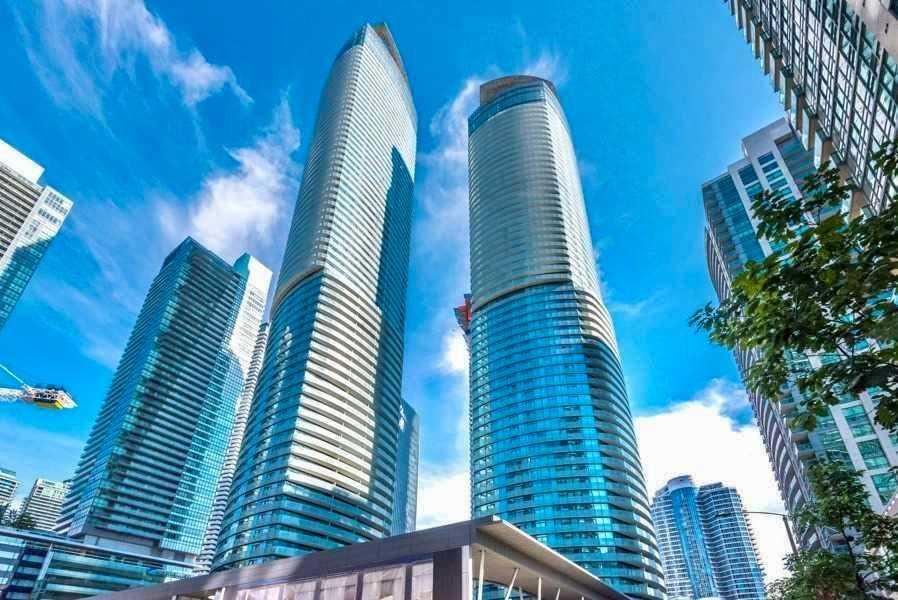
12 & 14 York St
Developed by Lanterra
Registered in 2016 | TSCC-2510
67 Storeys | 1343 Units
Maple Leaf Square Condos
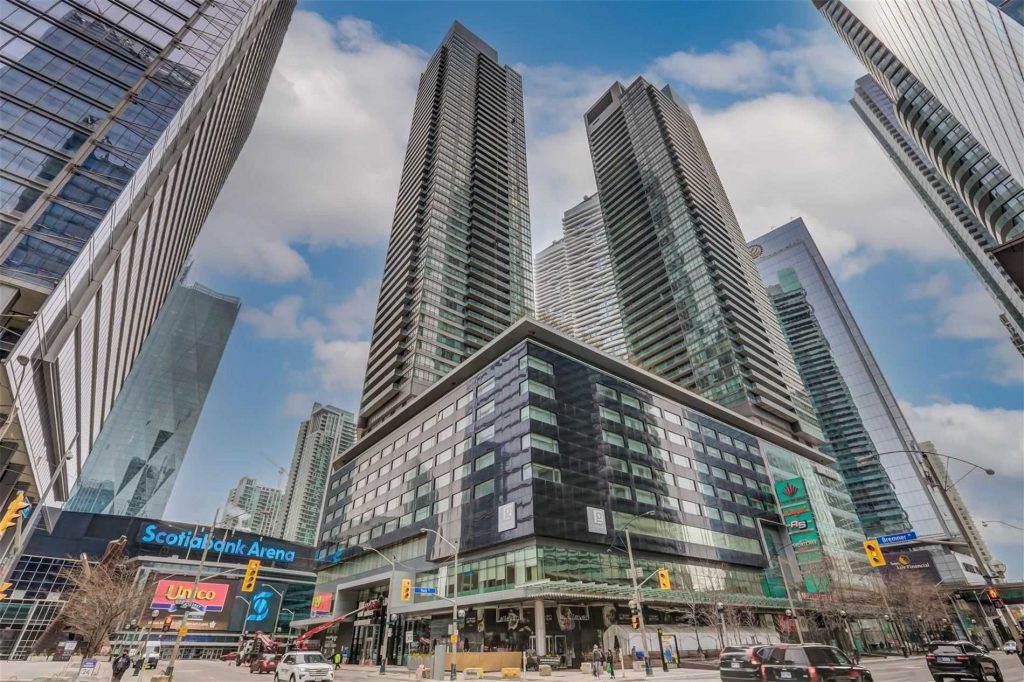
55 & 65 Bremner Blvd
Developed by Lanterra
Registered in 2010 | TSCC-2130
49 Storeys | 872 Units
300 Front Condos
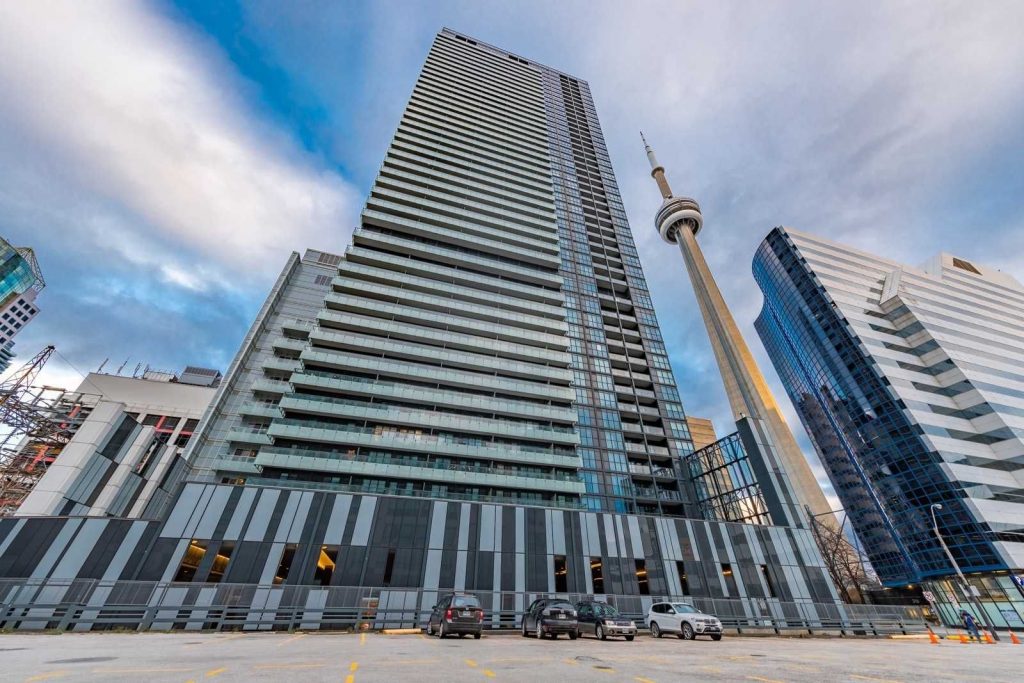
300 Front St W
Developed by Tridel
Registered in 2013 | TSCC-2338
49 Storeys | 680 Units
Peter Street Condos
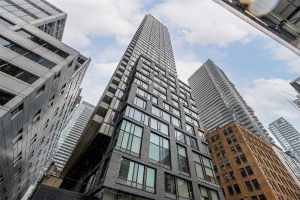
101 Peter St
Developed by CentreCourt
Registered in 2014 | TSCC-2416
Reve Condos
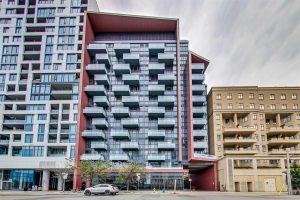
560 Front St W
Developed by Tridel
Registered in 2011 | TSCC-2203
14 Storeys | 305 Units
Studio On Richmond
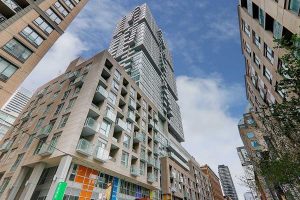
199 Richmond St W
Developed by Aspen Ridge
Registered in 2016 | TSCC-2517
31 Storeys | 333 Units
Neptune 1 & 2
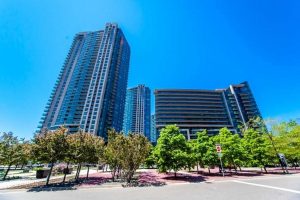
209 & 215 Fort York Blvd
Developed by Lanterra
Registered in 2011 | TSCC-2181
38 Storeys | 861 Units
Quartz & Spectra
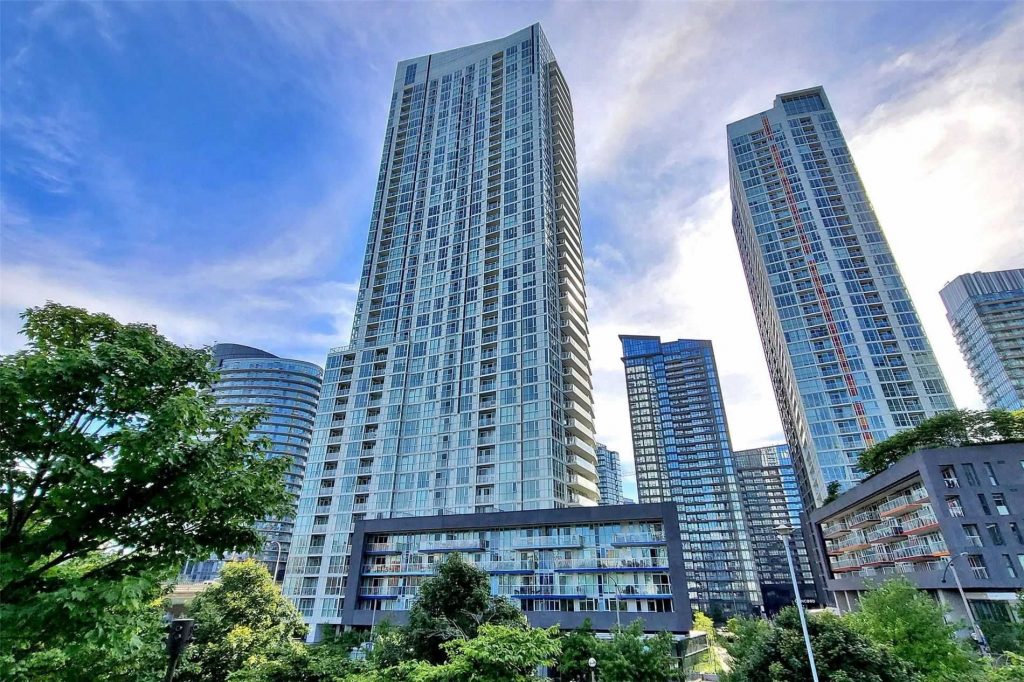
75 & 85 Queens Wharf Rd
Developed by Concord
Registered in 2015 | TSCC-2458
41 & 39 Storeys | 940 Units
Parade 1 & 2
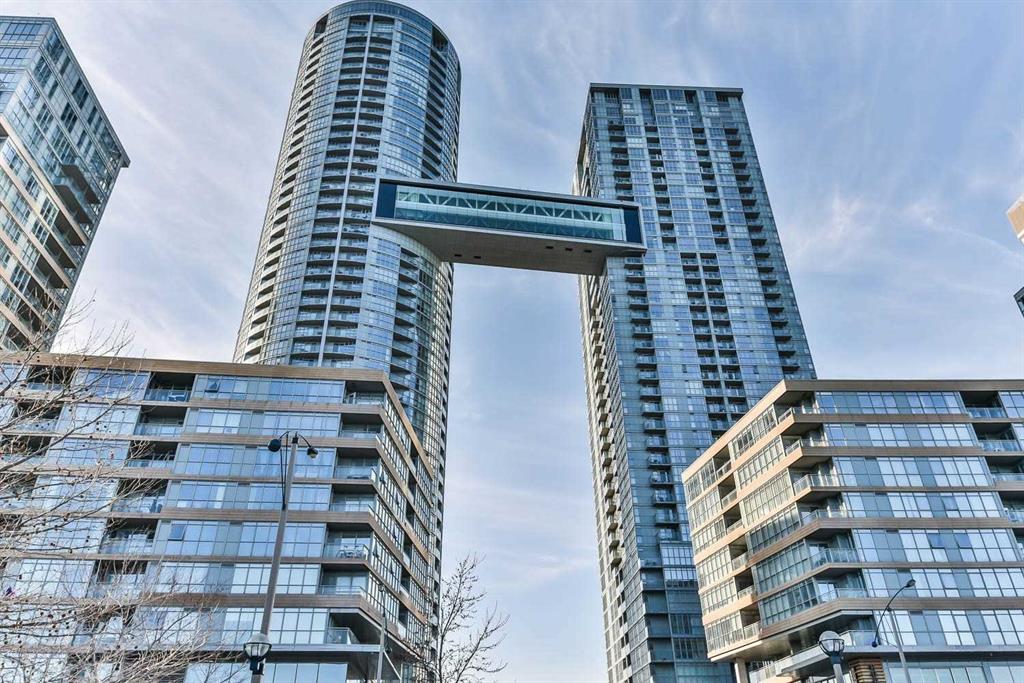
15 & 21 Iceboat Terrace
Developed by Concord
Registered in 2011 & 2013 | TSCC-2157 & 2301
39 & 43 Storeys | 1755 Units
Harbour View Estates 2
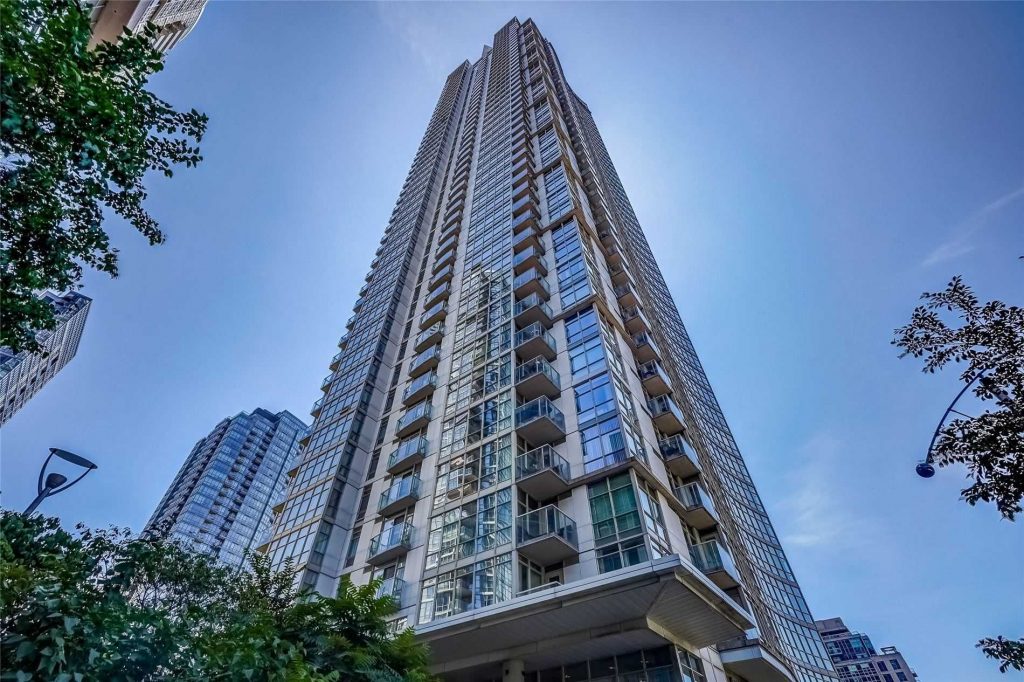
35 Mariner Terrace
Developed by Concord
Registered in 2005 | TSCC-1713
49 Storeys | 520 Units
